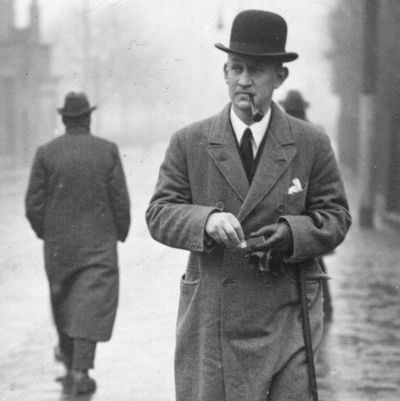
“Is keeping a lid on your feelings really so bad?” wonders the BBC today in an exploration of that British cultural stereotype, the stiff upper lip. In it, writer Linda Geddes explores – mildly, rationally, level-headedly – the general practice of keeping calm and carrying on.
What about, she writes, what’s known as Blitz Spirit, or “showing stoicism and determination to carry on in the face of difficult situations”? In a tense time, like the period after the 2005 terrorist attack in London, “expressing panic and distress … could be dangerous,” Geddes argues. “If we see others just gritting their teeth and getting on with things, it can leave us feeling encouraged instead.”
Emotional contagion is indeed a real phenomenon, and the evidence has suggested that negative emotions – like hostility – tend to be particularly catching. So, fair enough. But Geddes’s piece also very gently notes that this particular emotion-regulation strategy is what one might call suppression, and it is probably not always the healthiest idea in the long run.
She quotes Stanford psychologist James Gross, who has tested this in a laboratory setting, along with his colleague Jane Richards of the University of Washington. The two found that asking their study volunteers to conceal their emotional reactions – say, when watching an anxiety-inducing scene from a movie – they performed worse on a subsequent test that quizzed them on what happened in the scene, as compared to those who hadn’t been asked to hide their feelings.
Then again, some studies have shown that there may be cultural differences here, and that societies in which it’s expected that one keep their little feelings to themselves, individuals may experience fewer emotional or cognitive consequences for doing so. In the end, from the bulk of the scientific literature one can basically conclude this: Sometimes it works! But sometimes it backfires. What might be most important, as Gross has said in the past, is knowing when it makes sense to keep your emotions in check, and when it’s smarter to use other emotion-regulation strategies, like seeking support from friends and family. This seems like some rather measured, unemotional advice on just what to do with all of your emotions.

